Some Hong Kong people have raised questions after the National People's Congress (NPC), the country's top legislature, adopted a decision on the national security legislation for the Hong Kong Special Administrative Region (HKSAR) on May 28. Though their concerns are different in nature from those in the U.S. and the West, it is still necessary to break down for Hong Kong people why there is no need to worry about their legitimate rights.
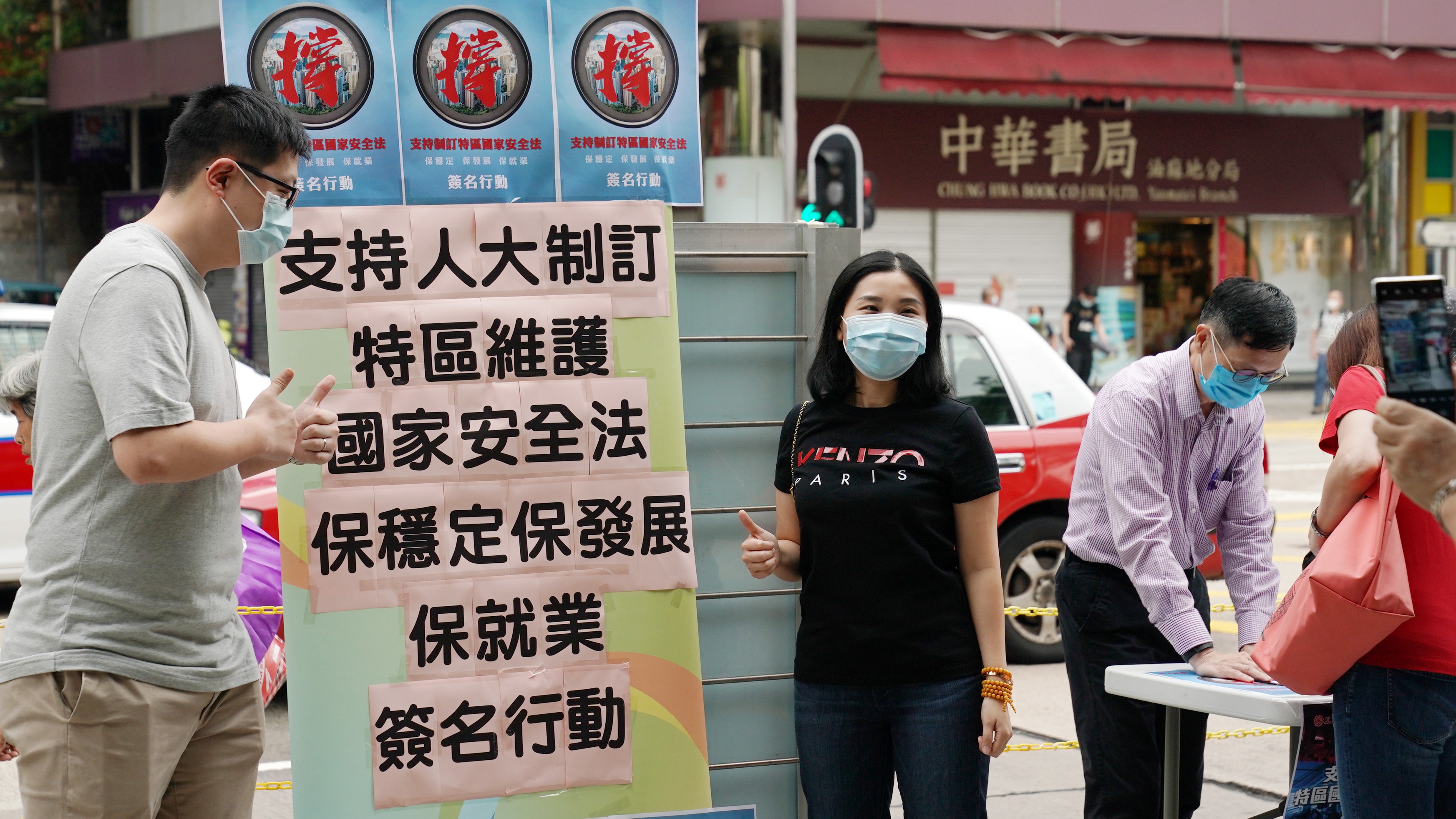
Residents attend a street campaign in support of national security legislation for the HKSAR in Hong Kong, south China, May 23, 2020. /Xinhua
Residents attend a street campaign in support of national security legislation for the HKSAR in Hong Kong, south China, May 23, 2020. /Xinhua
Q: Will I break the legislation accidentally?
A: Law-abiding residents have nothing to fear
Law-abiding residents and investors have nothing to fear about the national security legislation for the HKSAR, which will guarantee Hong Kong's long-term prosperity and stability, said Matthew Cheung, chief secretary for administration of China's HKSAR, urging residents not to be bewitched by rumors.
The legitimate rights, interests, freedoms and core values of Hong Kong residents are fully protected and the principles of "One Country, Two Systems," "Hong Kong people administering Hong Kong" and a high degree of autonomy are applied in the city without distortion, Cheung underscored in an online article on June 7.
00:47
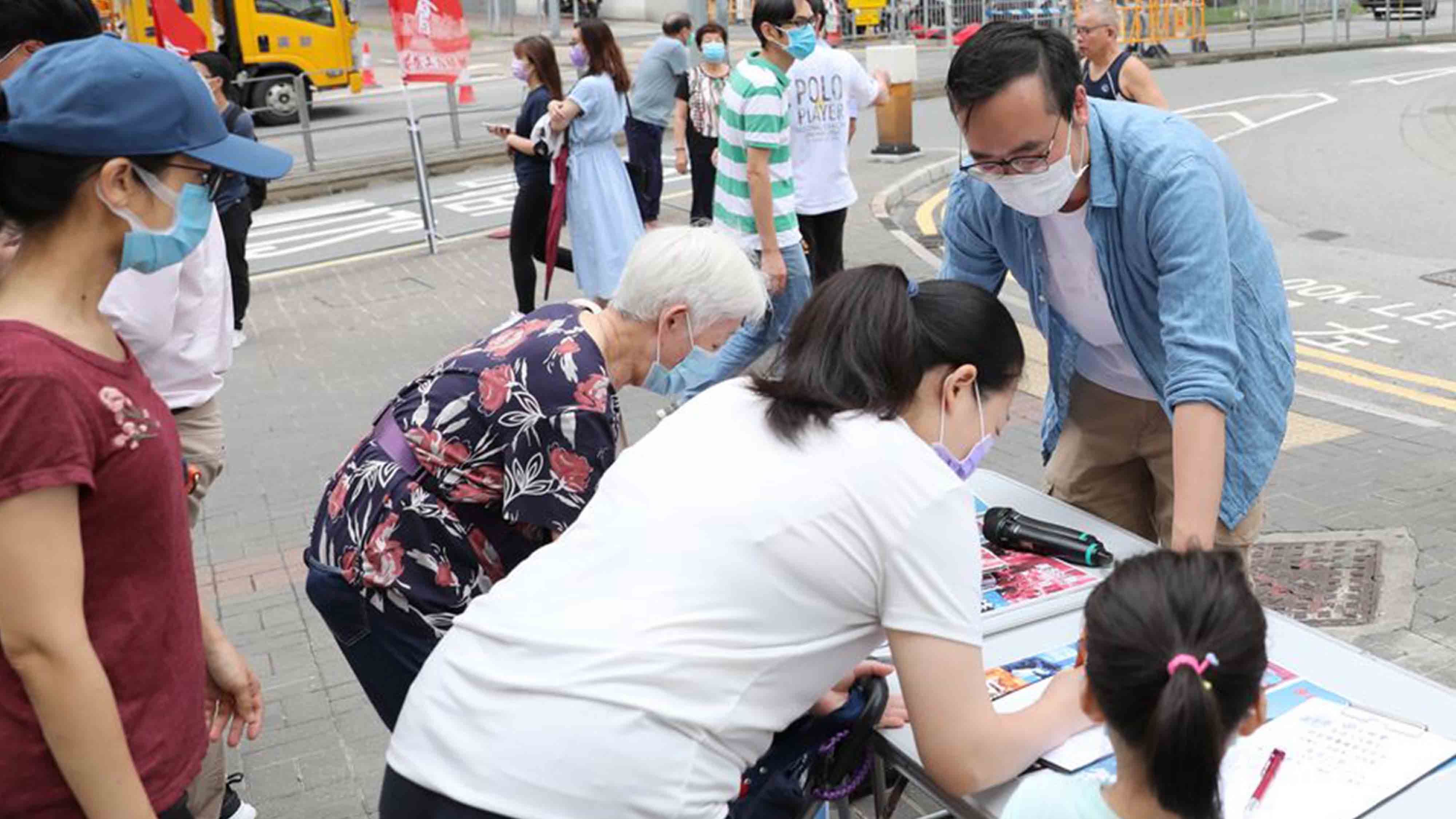
Hong Kong residents from all walks of life have voiced support for the national security legislation for the HKSAR.
On June 1, nearly 2.93 million Hong Kong residents signed a petition in support of the national security legislation during an eight-day campaign across the city.
Q: Vigils may never be legal again?
A: Only separatists need to be concerned
The Basic Law is still here, strongly, fully enforced, fully honored, Lawrence Ma, executive council chairman of the Hong Kong Legal Exchange Foundation, told CGTN.
"I mean the Basic Law, every article of it is here, we have our own legal system. We have our own administrative system. We have our own legislative system. We have our own separate system of banking. We have our own currency. We have our own shipping laws and admiralty laws. And we have our freedom of expression and rights protection in four chapters," he said.
Read more:
Behind the scars: 1-year anniversary of HK protests
Ma told ordinary Hong Kong residents that they will "live ordinary days, your days could not be any different."
"But for those who wanted to say or vouch for separatism, for those who want to vouch for secession and sedition, I think they would have a concern," Ma underlined.
04:47
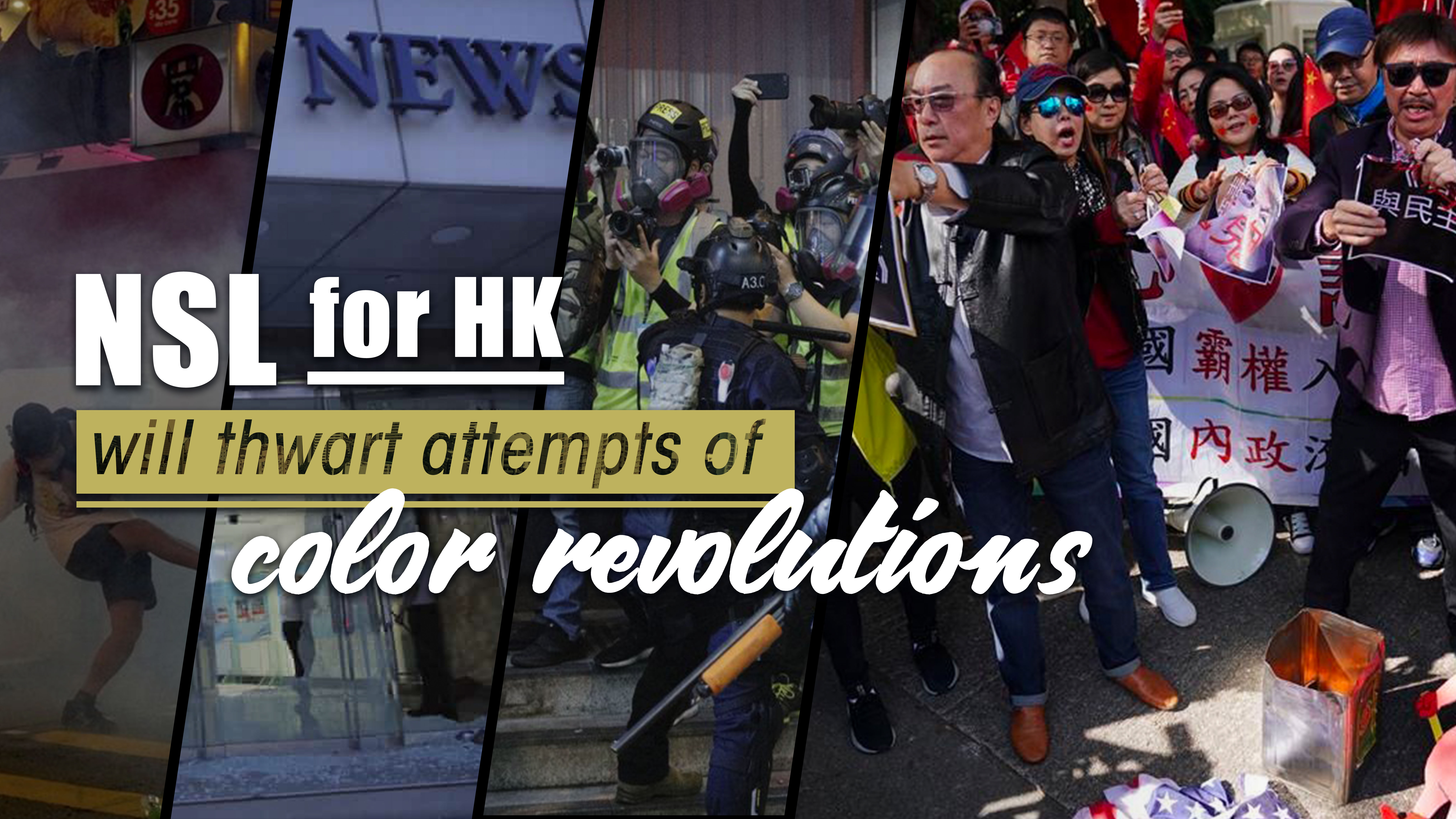
Q: Does the legislation suppress freedom of speech?
A: Don't confuse national security with freedom
The New York Times published an article titled "What happens to Hong Kong now?" saying that the security law "sends the message that expression of political dissent or freedom of speech in Hong Kong are now at greater risk than ever," and "chilling effects like self-censorship or reluctance to speak out may be likely" even if there is no government-directed erosion of freedom.
But what should be clear is that we can't have any tolerance for treasonous acts.
Expression of dissent is not the same as trying to use violence to force the government into concessions or allowing the region to become independent. Just as foreign powers used the idea of freedom to rile up protests last year, all the provocateurs need to do to incite mass opposition against the bill is to make an emotional connection between the bill and the idea of being suppressed or deprived.
The Chinese foreign ministry said on Monday that new national security legislation will enable Hong Kong residents to better exercise their legal rights and freedoms in a secure environment.
Some U.S. politicians have uttered opposition to the legislation, not because they care about the freedom enjoyed by Hong Kong residents, but because they want to do everything they can to sabotage China's national security, Foreign Ministry spokesperson Hua Chunying said.
Q: Is 'one country, one system' really happening?
A: Completely false
Under "One Country, Two Systems," Hong Kong residents enjoy unprecedented democratic rights and freedoms, a spokesperson from the Office of the Commissioner of the Ministry of Foreign Affairs in HKSAR said on May 31.
Read more:
National security law for HK gives more room to 'One Country, Two Systems': Zhang Xiaoming
Hitting back at Trump's claim that Hong Kong now operates under "one country, one system" as completely false, the spokesperson said the U.S. side has no right to make any decision on behalf of the Hong Kong people.
Hong Kong affairs are purely China's internal affairs, and no country, organization or individual can interfere in any way, the spokesperson stressed.
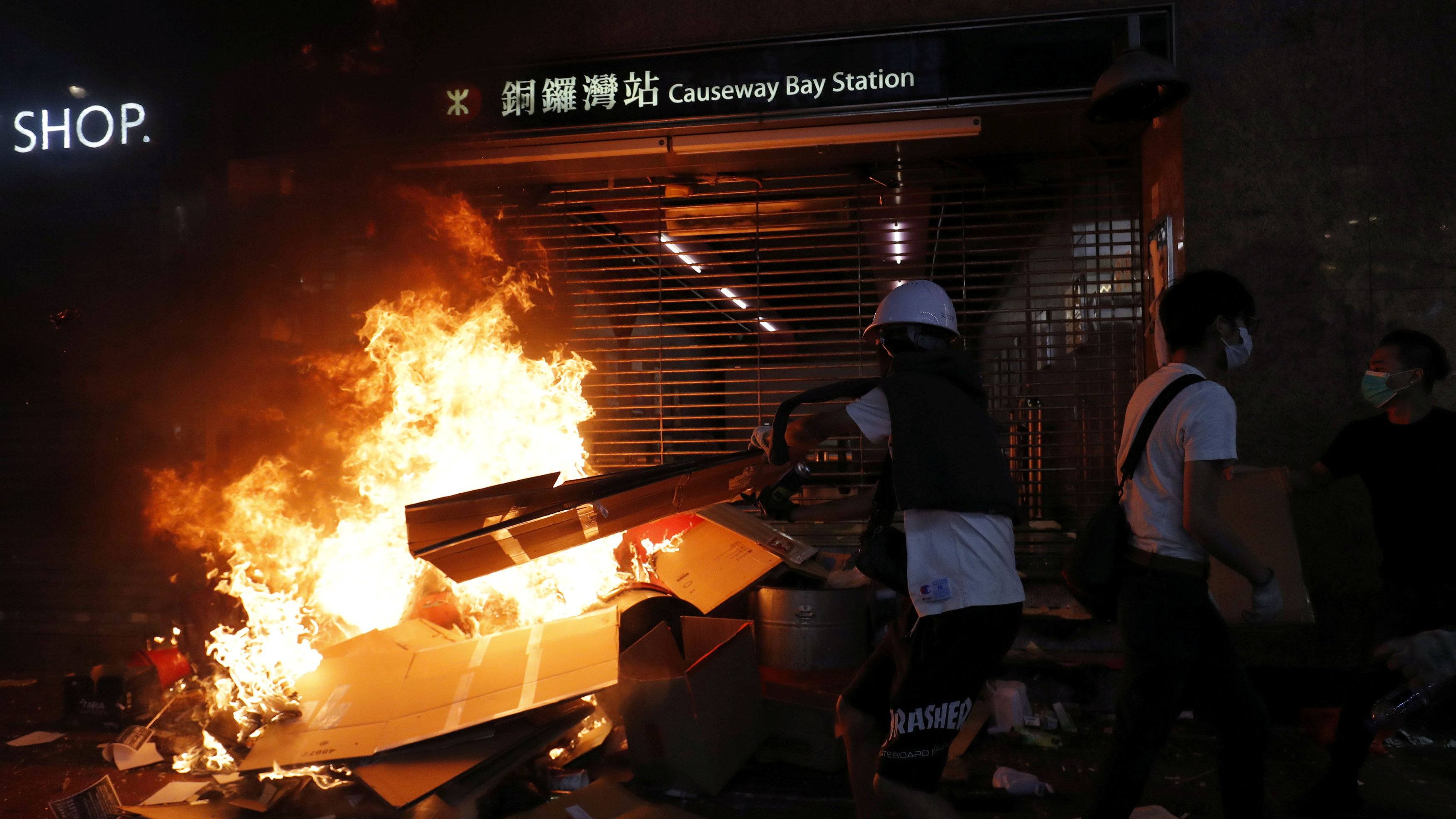
Anti-government protesters set fire to one of the entrances of the metro station at Causeway Bay in Hong Kong, China, October 4, 2019. /Reuters
Anti-government protesters set fire to one of the entrances of the metro station at Causeway Bay in Hong Kong, China, October 4, 2019. /Reuters
Q: Will the legislation harm Hong Kong's universities and academic freedom?
A: A safe Hong Kong is guaranteed
Presidents of five Hong Kong universities signed a joint statement on June 1 to support the national security legislation, which they deemed as necessary to guarantee Hong Kong's stable long-term development.
In the statement, they said that the universities will continue to preserve academic freedom, the autonomy of institutions, and maintain multiculturalism.
Q: Will the legislation hurt Hong Kong's economy?
A: It guarantees a sound investment environment
The U.S. and Europe will not support Hong Kong in difficult times without financial and political benefits, but China's central government has always cared for Hong Kong and makes all efforts to promote the Asian financial hub's development.
Read more:
HK permanent residents to receive HK$10,000 cash handout from govt
On Wednesday, HSBC and StanChart backed China security laws for the HKSAR. Chairman of International Pacific Securities Geoff Hill also said he believes Hong Kong still has the "essential framework" of an excellent global business center with national security legislation.
03:28
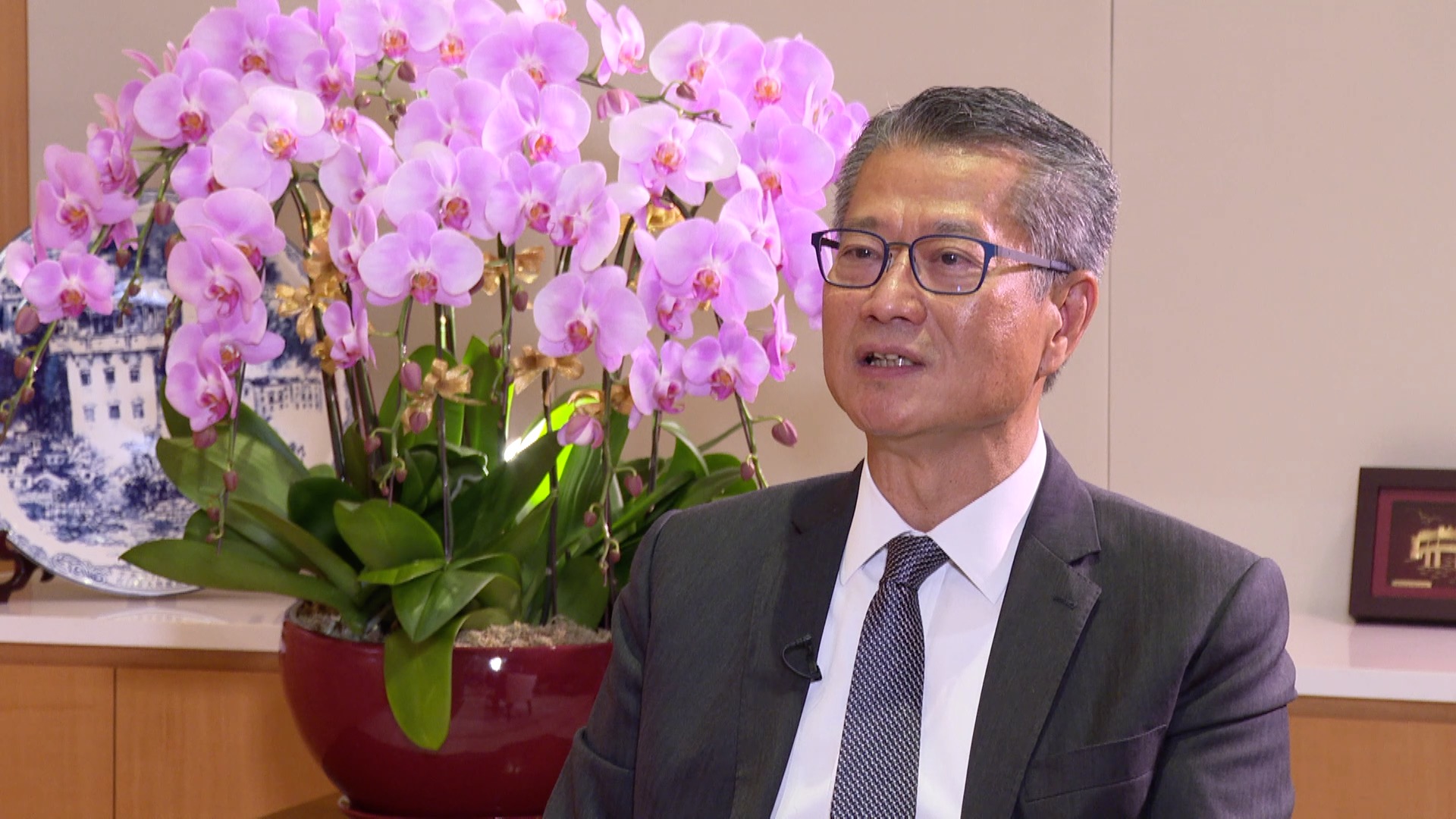
When talking with CGTN, Hong Kong's Financial Secretary Paul Chan also voiced support for the legislation as the foreign investors he engaged with said social stability, law and order are very important for an international financial center and investors, and they believe the new legislation will help do that.
"Although they are waiting for the details to be announced, overall, they see the need for this legislation in order for Hong Kong to return to a safe society with social stability," Chan added.
Q: Will the 'black-clad violence' return?
A: The legislation will not allow it
The national security laws for Hong Kong will deal with the unrest that pose serious threats to the national security.
The legislation is to ensure long-term stability for the city. The threat of terrorist attacks is currently assessed to be "moderate" on a three-level scale, according to Hong Kong Security chief John Lee Ka-chiu.